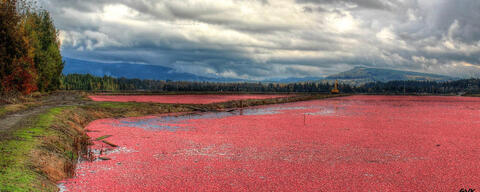Welcome
The Yale Applied Science Synthesis Program (YASSP) is an initiative of The Forest School at the Yale School of the Environment and the Yale Center for Natural Carbon Capture.
The program connects academic researchers, policymakers, and those managing lands to answer applied questions about how land management decisions affect the services provided by forests, croplands, wetlands, rangelands, and grasslands.
We work with for- and not-for-profit partners that need to make decisions on sustainable land management practices. Our work focuses on the regional context within which local management decisions are made, to help maximize ecosystem benefits provided by these land resources, such as carbon storage, sustainable food production, and biodiversity. Our mission reflects the founding principles of The Forest School, which was first established in 1900, to develop applied scientific knowledge to guide effective stewardship of the nation’s forests. Core support for our work is funded by the Yale Center for Natural Carbon Capture and the Yale School of the Environment, including The Forest School where the program is housed. Additional project funding and data support has come through the Ecosystem Services Market Consortium, Environmental Defense Fund, Firuza Foundation, General Mills, Hudson Carbon, Lawrence Livermore National Lab, Climate Works Foundation, and Ocean Spray, Inc.
Highlights
Scientists Pen an Open Letter signed by YASSP researchers encouraging SBTi Expert Working Group and Article 6.4 Supervisory Body to Continue Incentivization for Nature in Climate Action
To combat and dissuade recent proposals for climate action policy that downplay NCS investments based on durability concerns, scientists pen a consensus and urging to ensure that natural climate solutions (NCS) continue to be an integral component of international climate goals as policies for carbon removal are updated and progress. Read the letter here.
YASSP researchers lead, alongside The Nature Conservancy, in research group partnership with Integrity Council for Voluntary Carbon Markets (ICVCM)
Science for High-Integrity Frameworks to Transform the Carbon Market (SHIFT_CM), a group of VCM researchers and stakeholders formed from a YCNCC-funded workshop in December 2024, have initiated several research papers to address critiques in carbon crediting. The partnership with ICVCM further improves the collective science-based approach to ensure scientific integrity in carbon crediting and progress the carbon trade to meaningfully address climate change. Read more about the work at The Nature Conservancy Newsroom and on Carbon Pulse.
Scientists recommend updates to forest carbon protocols, including strengthening reversal risk assessments and periodic updates to forest carbon baselines
Dr. Sara Kuebbing served on a team of leading forest scientists in the evaluation of 20 forest carbon credit protocols. The team scored the protocols on robustness related to the likelihood that the protocol standards as written would result in consistent and accurate accounts of carbon storage via three forest-based climate solutions: improved forest management, afforestation/reforestation, and avoided planned forest conversion. The findings show that updates to the standards are necessary to improve carbon credit quality and accuracy. You can read the full article here and the YSE Q&A with Sara here.



